 | Department of Economics |
| NEWS & MEDIA |
NEWS
Economics Faculty Development Workshop, Winter 2019
The Economics Faculty Development Workshops were held on the 7th, 8th, 9th, and 11th October, 2019. Below are the topics and agendas of the workshops:
1. Getting Started with Data Science in Rapid Miner
Facilitator:
Dr. Syeda Rabab Mudakkar, Assistant Professor, Faculty of Basic Sciences Centre for Mathematics & Statistical Sciences, Lahore School of Economics.
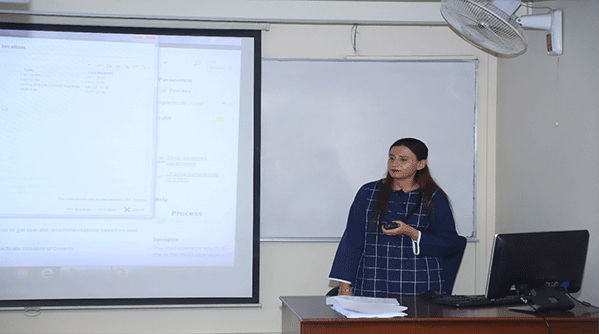
Agenda
Rapid Miner studio is a visual data science environment for building analytical processes to carry out the tasks including data access and management, data exploration, data preparation, modeling, scoring, automation and process control. The software is Gartner peer insights “customer’s choice 2019” for data science and machine learning. The day will start introducing application and interface feature of Rapid Miner studio. Participants will next be introducing to Processes, Operators, Repository and Marketplace extensions. The familiarity of software leads to introduction of data exploration and predictive analysis using hands-on-session. Next, how to import and export data files from Drop box will be introduced. Finally, session ends up with how to extract unstructured data using Twitter platform.
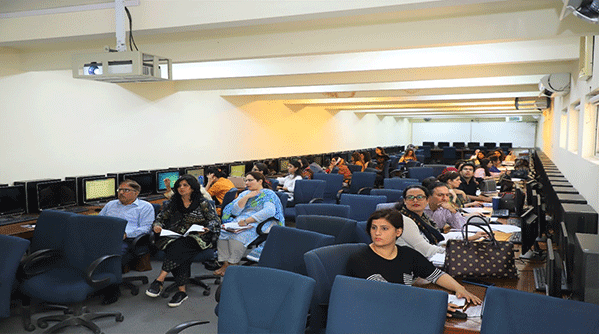
Learning Outcomes:
By the end of training, participants will learn how to
- Prepare and visualize data in Rapid Miner studio,
- Implement machine learning models for predictive analytics,
- Carry out prescriptive analytics,
- Access data from cloud storage and
- Extract unstructured data using social media platform.
2. Solving Mathematical Models on Maple
Facilitator:
Dr. Rehana Naz, Associate Professor, Faculty of Basic Sciences Centre for Mathematics & Statistical Sciences, Lahore School of Economics.
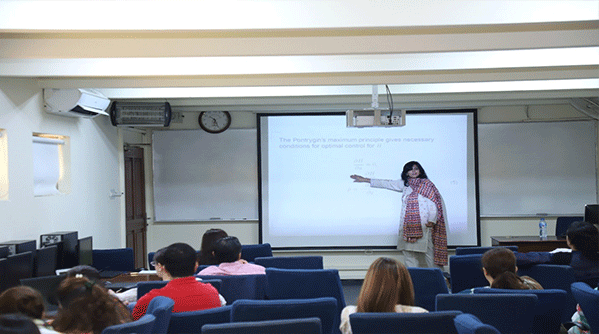
Agenda
- Introduction to Software Maple
- Introduction to Optimal Control Problems in Economic growth theory and Pontryagin’s Maximum Principle
- First order conditions and computation of BGP for Ramsey Model using Maple
- First order conditions and computation of BGP for Lucas-Uzawa Model using Maple
- First order conditions and computation of BGP for Romer’s model using Maple
- First order conditions and computation of BGP for Finance-extended Lucas-Uzawa model using Maple
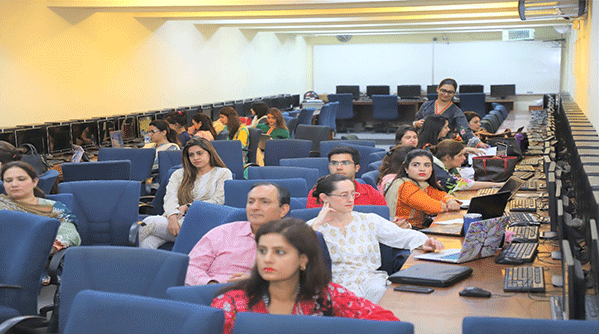
3. Running Simulations on Maple
Facilitator:
Dr. Rehana Naz, Associate Professor, Faculty of Basic Sciences Centre for Mathematics & Statistical Sciences, Lahore School of Economics.
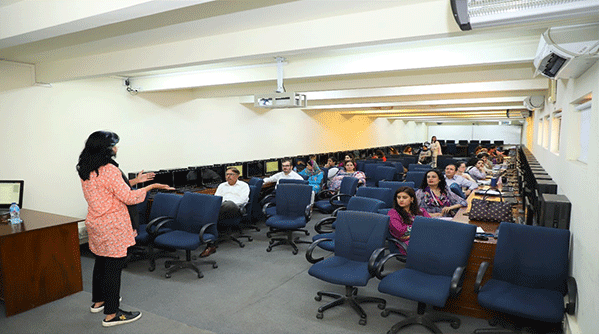
Agenda
MapleSim generates model equations, runs simulations, and performs analyses using the symbolic and numeric mathematical engine of Maple. Models are created by dragging-and-dropping components from a library into a central workspace, resulting in a model that represents the physical system in a graphical form.
Reference articles used:
- . R. Naz, A. Chaudhry, Closed-form solutions of Lucas–Uzawa model with externalities via partial Hamiltonian approach, Computational and Applied Mathematics, Comp. Appl. Math. (2018) 37:5146–5161
- Azam Chaudhry, H. Tanveer, R. Naz, Unique and multiple equilibria in a macroeconomic model with environmental quality: An analysis of local stability, Economic Modelling, 63 (2017), 206-214
- A. Bucci, S. Marsiglio, S 2018. Financial development and economic growth: Long-run equilibrium and transitional dynamics. Scot. J. Polit. Economy
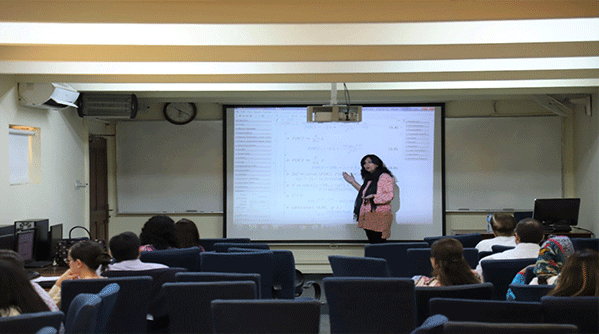
4. Machine Learning with R – Introduction
Facilitator:
Ms. Maha Ijaz, Assistant Professor, Faculty of Business Administration, Lahore School of Economics.
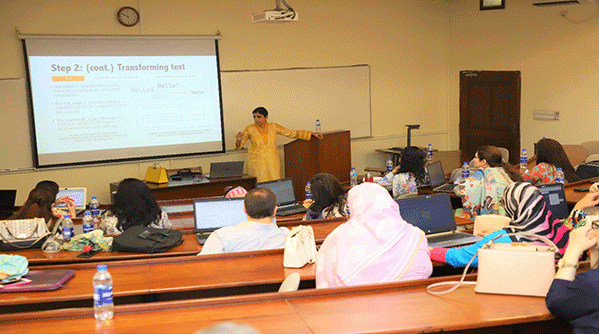
Agenda
The session provided an introduction to several of the most popular machine learning methods and how to apply them in R.
Learning Outcomes:
By the end of the session, you have the ability to use machine learning to explore a topic of your own choosing.
The goal was for you to gain a conceptual, conversational, plain-language understanding of machine learning. The session did not rely on advanced math or programming skills.
Two to Three machine learning topics were covered, with adequate time for hands-on work with R, using data set.
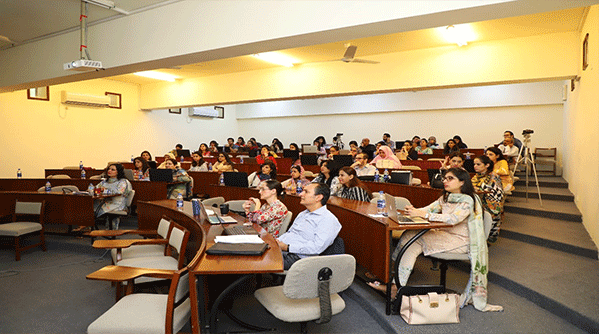
Topics covered included:
- How machines learn (Introduction)
- k-Nearest Neighbors
- Naïve Bayes
- Decision Trees and Rule Learners
- Lab sections – practicing with Naïve Bayes and decision trees
 People
People